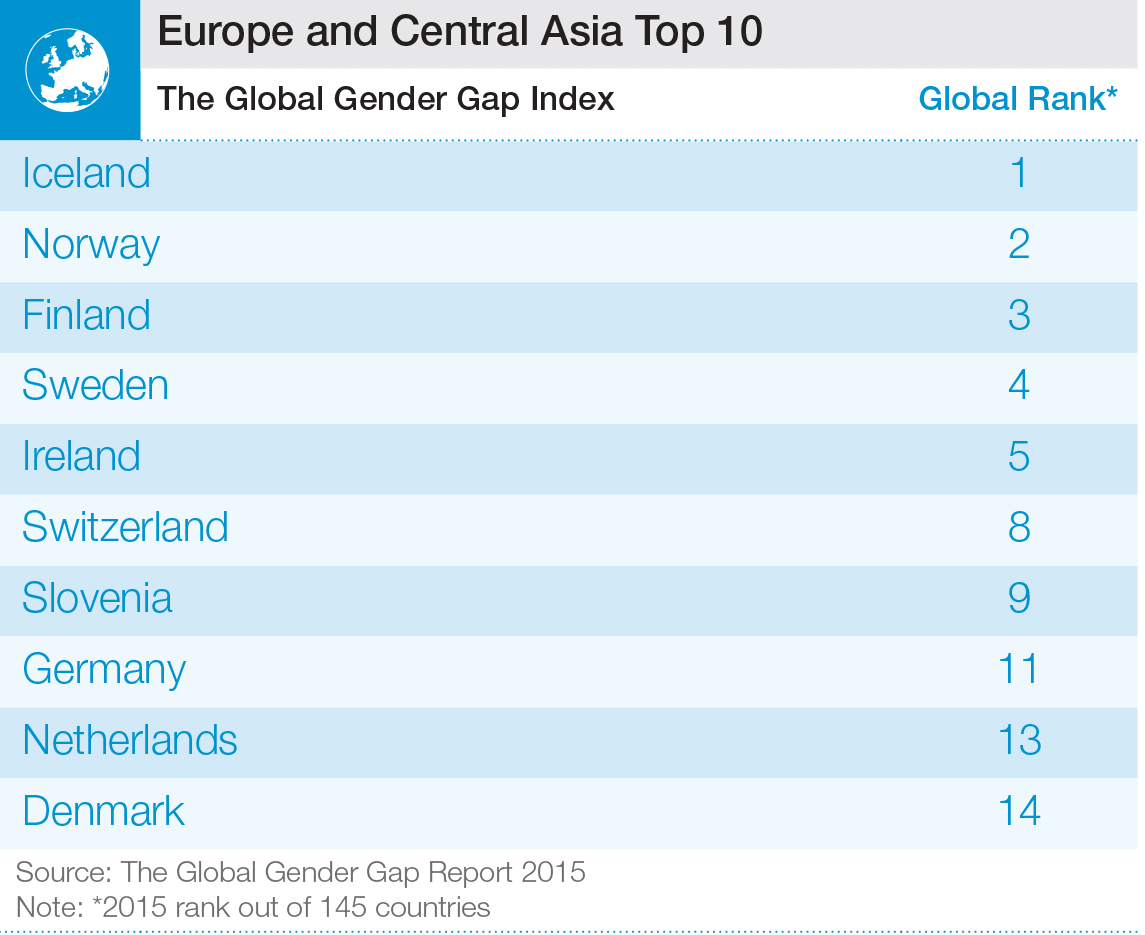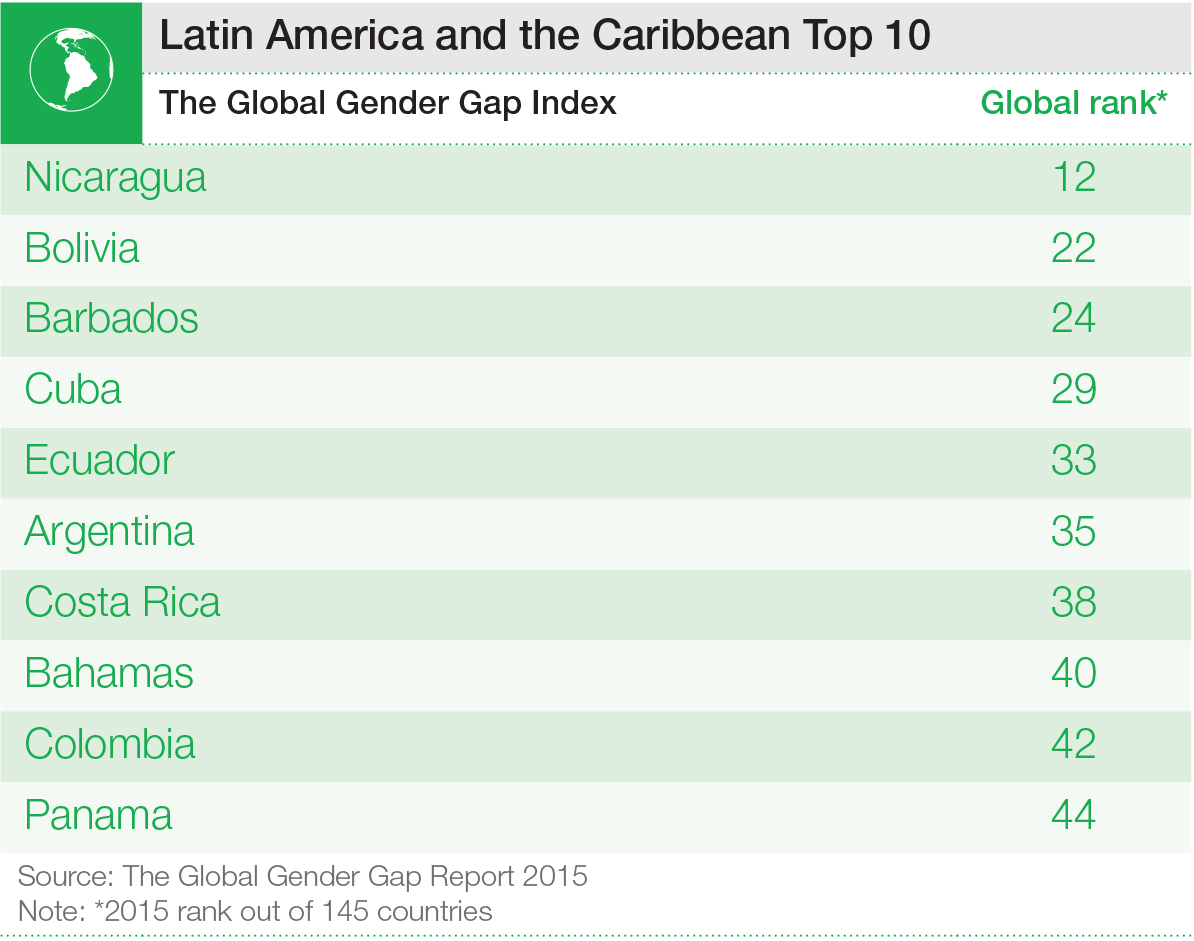5 regional views on gender parity

This year’s Global Gender Gap report shows how 145 countries around the world are faring at closing the gap between men and women. Here, leaders at the World Economic Forum outline what the findings mean for their region or country.
Tanya Milberg, Europe
Gender equality (a basic human right) has improved in Europe but it is not universal. Needless to say, women represent half of the EU’s 508.2 million citizens, but this is not reflected by their presence in politics, business, or media. Women are paid less in leadership positions and most alarming of all is the continuing violence against women. Developing concrete public policies to improving the lives and prospects of women to ensure equality is a necessity NOW at the local, national and European level.
Elsie Kanza, Africa
The gender gap takes on a unique hue in Africa. On the one hand, countries like Rwanda, South Africa and Namibia have an enviable record in empowering women through better education, health, job prospects and political power. These countries serve as role models for the rest of the region but even there, more must be done to help women out of low-paid work into skilled and leadership positions. Government, business and society all have a role to play in creating an environment where women can learn, participate and excel: our region’s future depends on them getting this right.
Paul Smyke, North America
The gender gap outlook in North America is mixed, as it remains the best performing region in the index, yet the United States and Canada fell 8 and 11 places respectively, due to increased wage inequality and a decrease in political empowerment from the previous year. The new government of Canada provides a bright spot as it has reached gender equity, an example for other nations around the world.
Marisol Argueta, Latin America
Women’s participation in Latin America has improved significantly in various ways across economic, political, cultural and social life during the last decade, however, important areas remain stagnated or vulnerable to regression. Public policies on gender equality must take into account complex social dimensions to provide a more ambitious, rapid and innovative response to the challenges in closing the gender gap. This report provides data at a national level, which should be used not only by policy makers, but also by leaders from business and civil society to eliminate inequities and ensure women’s full participation without discrimination, without barriers and in equal conditions.
Viraj Mehta, India
There has never been a better opportunity for India to close its gender gap: Women now occupy 22% of ministerial positions (from just 9% in 2014). While there are female CEOs in sectors such as finance and women form a significant portion of India’s new professional classes, the challenge remains to change lives for the hundreds of millions of women who remain far from the corridors of power and the engines of economic growth. Women have actually seen overall declines in economic participation, and in terms of their health and survival, India remains one of the least progressed countries in the world.
Author: Oliver Cann, Director, Media Relations, World Economic Forum
Image: A woman enjoys the view of Bettelwurf mountain from a wooden platform on a sunny autumn day in the western Austrian village of Tulfes, Austria October 31, 2015. REUTERS/Dominic Ebenbichler
Don't miss any update on this topic
Create a free account and access your personalized content collection with our latest publications and analyses.
License and Republishing
World Economic Forum articles may be republished in accordance with the Creative Commons Attribution-NonCommercial-NoDerivatives 4.0 International Public License, and in accordance with our Terms of Use.
The views expressed in this article are those of the author alone and not the World Economic Forum.
Forum Stories newsletter
Bringing you weekly curated insights and analysis on the global issues that matter.




